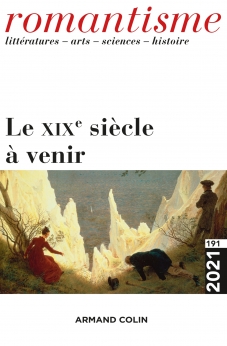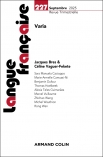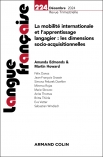
Romantisme N°191 (1/2021)
Pour acheter ce numéro, contactez-nous
Recevez les numéros de l'année en cours et accédez à l'intégralité des articles en ligne.
Cet article se propose de revenir sur l’héritage du premier romantisme allemand des années 1800, notamment réuni autour de Novalis, des frères Schlegel et de Friedrich Schleiermacher. On interrogera successivement trois problématiques de cette période qui ont marqué la pensée et l’art du XIXe siècle : la position éminente de la subjectivité, la dimension philosophique de l’art, le projet d’union de l’art et des sciences avec la vie réelle. Loin d’instaurer le culte religieux de la « belle âme » ni de fonder un régime de la vérité absolue en art, le premier romantisme procède à un élargissement de la subjectivité et du concept d’oeuvre. La philosophie critique et polémique des premiers romantiques à l’égard des systèmes idéalistes libère une pensée symbolique de l’infini et une poïesis du devenir. Le projet novalisien de romantisation du monde ressaisit ces questions et résonne singulièrement avec plusieurs questions écologiques et entropiques contemporaines.
This paper reconsiders the heritage of the first German romantics from the 1800s, those who gathered around Novalis, the Schlegel brothers and Friedrich Schleiermacher. It focuses in succession on three issues from this period that marked the thought and art of the 19th century: the prominent position of subjectivity, the philosophical dimension of art, the project of uniting the arts and sciences to real life. Far from instating the religious cult of the “beautiful soul” or establishing a regime of absolute truth in art, this first romanticism first widened the scope of subjectivity and of the concept of the work. The philosophical and polemical critique of idealist systems on the part of the first romantics freed symbolic thought for infinity and for a poiesis of becoming. Novalis’ project of romanticising the world takes hold of these issues and echoes contemporary ecological and entropic issues.

